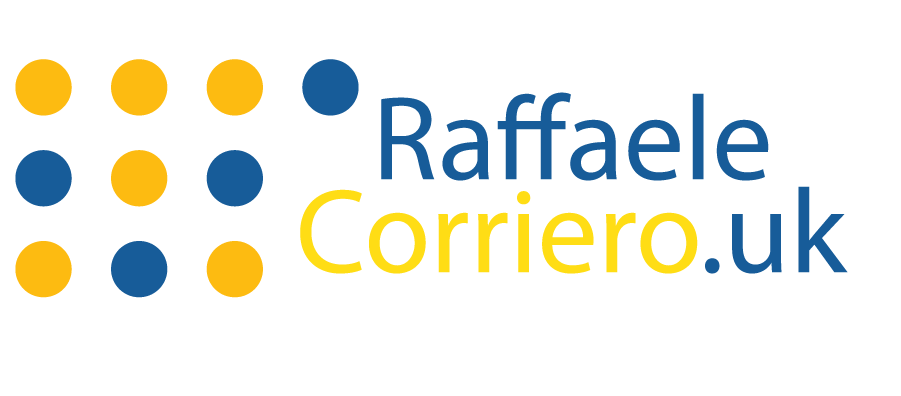Did you know over 70% of small businesses use SEO to enhance their online footprint? This huge number shows how vital search engine optimisation is for small firms. In today’s online world, being seen is key. And SEO is a main tool for small companies to boost their online image without big ad costs.
SEO helps a website rank higher in search engine results, drawing more visitors. It’s a cost-friendly option for small firms, promising lasting gains through growing organic visibility. Yet, it needs time and ongoing work, as results don’t show up overnight.
Small businesses can thrive in the digital marketplace by focusing on specific details. These include the right keywords, engaging content, strong backlinks, quick site speed, and great mobile use. It’s also important to know the difference between local SEO and wider strategies. This depends on who you’re trying to reach and where they are.
Key Takeaways
- Over 70% of small businesses turn to SEO for better online visibility.
- SEO offers a budget-friendly marketing path for small enterprises.
- Getting a website to rank higher takes patience and effort.
- Crucial factors are the right keywords, good content, backlinks, website speed, and mobile friendliness.
- Knowing when to use local SEO versus a broader strategy matters, based on your audience and location.
Why Small Companies Need SEO
For many small businesses, finding cost-effective marketing solutions is crucial. SEO, or search engine optimisation, presents itself as a highly affordable option. It lets small companies boost their online presence without the high costs of ads.
Cost-effective Marketing
SEO is a budget-friendly choice compared to traditional marketing techniques. By making your site more search-engine friendly, you can draw in visitors naturally. This means you can save money while maintaining a strong online presence over time.
The key benefit is the long-lasting impact with little initial spend. This makes it a great strategy for small businesses watching their budgets.
Improved Online Visibility
SEO also greatly improves a small business’s online visibility. Using the right keywords and creating quality content can push your site up in search rankings. This makes your business more visible to people online.
Being higher in search results means more people can find and visit your site. This can increase the chances of attracting new customers to your business.
What is SEO?
Search engine optimisation (SEO) boosts a website’s visibility on search results pages. It helps businesses drive more organic traffic by implementing various strategies. This process is vital for increasing online presence.
For businesses, SEO begins with understanding its key parts. These parts help websites rank higher in searches. They include:
- Content Relevance: Making sure your site’s content answers user questions.
- Keyword Targeting: Using the right keywords that potential customers search for.
- Backlinks: Getting quality links from trusted sites to increase authority.
- Technical Factors: Making your site fast and mobile-friendly to improve user experience.
By paying attention to these elements, businesses can make themselves more visible. SEO helps connect companies with people looking for their products or services. This connection is crucial during the decision-making phase, leading to better visibility and engagement.
The Importance of Keyword Research

Effective keyword research is key to any SEO strategy’s success. It allows SMEs to find out which search terms their customers use. This helps SMEs to be more visible to their customers.
Identifying Target Keywords
Identifying target keywords means figuring out what potential customers type into search engines. Small businesses can find important keywords this way. It makes sure their content matches what people are looking for.
Keyword Tools for Small Businesses
SEO tools make keyword discovery easier for small businesses. Tools like Ahrefs and SEMRush help find keywords, analyze searches, and assess difficulty. This lets businesses plan their content better. Thus, making keyword planning a simple part of a strong SEO strategy.
On-Page SEO: Best Practices
On-page SEO helps websites rank higher and attract more relevant traffic. It optimises webpages to improve visibility and user experience. This is key for a site’s success.
Optimising Title Tags and Meta Descriptions
Focus on title tags and meta descriptions to attract users. They offer a glimpse of your content, encouraging clicks from the SERP. Improving these elements boosts click-through rates and engagement.
Using Header Tags Correctly
Header tags structure your content clearly. They help search engines understand and rank your content better. Using them properly is crucial for SEO success.
Content Optimisation
Content optimisation goes beyond keywords. It aims to produce engaging, high-quality content for your audience. Including keywords naturally is essential, avoiding keyword stuffing.
Technical SEO Essentials
Making your website work better is key for top performance and for search engines to find and understand your site. We’ll look at important things like making your site faster, ready for mobiles, and set up right so search engines can list it properly.
Site Speed Optimisation
Websites that load quickly are nicer for visitors and get higher spots in search results. Making your site faster can really help. Check your site’s speed with Google’s PageSpeed Insights and fix any issues slowing it down.
Mobile Optimisation
Today, it’s crucial for websites to work well on phones and tablets. Make sure your site adjusts well to different screens. A site good on mobiles gets more visits and ranks better in searches.
Ensuring Proper Indexing
It’s important that search engines can see and organise your content right. Use a clear sitemap and robots.txt files to help search engines navigate your site. This will improve how you show up in searches.
The Role of Backlinks in SEO

Backlinks, or inbound links, are key in search engine optimisation (SEO). They show that a website’s content is credible and authoritative. High-quality backlinks from well-respected sources prove your site’s value. This makes search engines like Google trust your content more. Consequently, your site climbs higher in search results.
Getting quality backlinks from top websites is crucial. These links are like votes for your site’s quality. When reputable sites link to yours, it indicates your content is reliable. As a result, search engines may boost your domain authority.
Moreover, quality backlinks help new audiences discover your content. As top sites link to you, your visibility grows. This can bring in more organic traffic. A higher profile means attracting more links, which then further increases visibility.
Local SEO Tips for Small Businesses
Local SEO is key for small businesses wanting to draw nearby customers. It focuses on improving your visibility in local search results. This increases your local traffic.
Importance of Google Business Profile
It’s crucial for local businesses to set up a Google Business Profile. This ensures your business shows up in local searches and on Google Maps. Having an updated GBP listing helps gain trust from customers and search engines.
Optimising for Local Keywords
Using local keywords in your content is vital. It makes your business show up when customers search locally. Terms like “best coffee shop in Manchester” or “plumber near me” are examples. They help attract local searches to your site.
Getting Reviews from Local Customers
Encouraging happy customers to leave positive reviews can boost your local SEO. Good reviews on your Google Business Profile increase your credibility. They also help your local search ranking. A lot of good reviews can make new customers pick you over others.
By working on their GBP, optimising for local searches, and getting customer reviews, small businesses can strengthen their local presence. This lets them connect more with their community.
Content Marketing Strategy
Content marketing is key for small businesses to boost their online image. It makes customer interaction better and helps with SEO. Providing top-notch content is a must.
Creating High-Quality Content
Top-quality content is at the heart of a good content marketing plan. It must be insightful, fun to read, and tailored for your audience. This kind of content strengthens customer bonds and brings more visitors to your site.
Answering Customer Questions
Replying to your audience’s queries is a smart move. It shows you know your stuff and improves content engagement. Solving frequent questions can also help your SEO, making your site easier to find online.
Using Blogs and Articles
Blogs and articles are great for SEO. Keeping your blog updated draws constant interest. Using the right keywords boosts your search ranking, making you more visible.
SEO for Small Companies

Small companies face specific challenges and aims. It’s vital to use a customised SEO approach for them. Using a strategy focused on their particular needs and audience can make a big difference.
Tailored SEO Strategies
A customised SEO approach lets smaller firms reach their target customers and enhance their online image. Such strategies include fine-tuning website design and focusing on keywords related to their field. They also involve strategic online marketing to increase organic reach.
Long-term Benefits
Investing in SEO promises lasting growth, unlike temporary ads. It brings long-standing improvements in web traffic and brand trust. This steady build in visibility and online success comes from ongoing SEO efforts, ensuring continuous and significant progress.
Common SEO Mistakes to Avoid
In your SEO journey, remember to avoid common mistakes. Avoiding these errors helps optimise your website and boost visibility.
Keyword Stuffing
Keyword stuffing fills content with too many keywords, aiming to improve rankings. This not only hurts readability but can also lead to search engine penalties. Instead, use keywords naturally to keep your content engaging and readable.
Ignoring Mobile Users
Don’t overlook mobile users. With mobile searches on the rise, a non-mobile-friendly website can harm your user experience and rankings. Make sure your site works well on all devices to attract and keep more visitors.
Neglecting Meta Descriptions and Title Tags
Neglecting meta descriptions and title tags is a big mistake. These are key to drawing clicks from search results. Craft compelling, keyword-rich meta descriptions and title tags to improve your click-through rates and visibility.
Measuring SEO Success
Understanding how well your SEO strategy works is key to making better choices in the future. Using different methods helps us look at our efforts from all sides. Two main ways to measure SEO success are Google Analytics and tracking keyword positions.
Using Google Analytics
Google Analytics gives deep insights into how your website is doing. It tells you about your visitors, how they behave, and if they’re doing what you hope they’d do on your site. By using this info, companies can see what’s working and what’s not.
Important data like bounce rates, how long people stay, and how many pages they view show if your SEO is healthy. This information is very useful.
Tracking Keyword Rankings
Keeping an eye on your website’s ranking for certain keywords is vital. It lets you tweak your strategy to stay ahead. Knowing which keywords bring visitors helps focus your efforts to get even better results.
Tools like SEMRush and Ahrefs give updates on where you stand for certain search terms. This is great for keeping up in search results.
- Utilise Google Analytics for detailed data on user actions and where they come from.
- Use keyword tracking tools to monitor keyword position tracking and make necessary adjustments.
By using SEO analytics and keeping an eye on keyword rankings, small businesses can make the most of their SEO. Constantly checking and adjusting based on what you find is crucial for staying on top online.
Choosing the Right SEO Services

For small businesses, picking between handling SEO in-house or hiring an external agency can be tough. It’s important to know the pros and cons of each. This helps in choosing SEO help that fits your business goals.
In-House vs. Outsourcing
Choosing in-house or outsourcing SEO requires considering control, costs, and skill levels. Running SEO in-house means full oversight but needs dedicated people and special skills. This can be hard for small businesses. On the other hand, hiring an SEO agency brings in varied skills and might save money for businesses without their own SEO teams.
Deciding on SEO help requires thinking about your business’s ability to support an in-house team. Or the benefits an agency offers through convenience and knowledge.
Evaluating SEO Agencies
When looking at SEO agencies, check their reputation, outcomes, and what they offer. Do detailed homework and read reviews to confirm they have a strong SEO track record.
Consider their experience, feedback from clients, and case studies proving they achieve real SEO success. Making sure they communicate well and adapt their strategies to your needs is crucial. Picking the right SEO partner is key to reaching your goals and budget, ensuring long-term growth.
Budget-Friendly SEO Tools for Small Businesses
Today, a strong digital presence is key for small businesses. Affordable SEO solutions are here to help without breaking the bank. These budget-friendly tools streamline SEO processes, including keyword research and content optimisation. They are essential for boosting online visibility and growth.
Keyword Research Tools
Finding the right keywords is the first step in effective SEO. Tools like Google Keyword Planner, Ubersuggest, and Moz Keyword Explorer are great for small businesses. They help find valuable keywords, showing search volumes and competition. This way, businesses know which terms will bring in traffic and conversions.
Technical SEO Tools
Good website performance is crucial. Technical SEO tools such as Google Search Console, Screaming Frog, and GTmetrix are key. They find and fix technical issues affecting search rankings. These affordable solutions help make websites faster, easier to use, and better optimised for search engines.
Content Optimisation Tools
Aligning content with user intent and search algorithms is vital. Tools like Yoast SEO, Grammarly, and Surfer SEO offer useful tips for improving content. They help use keywords naturally, improve readability, and follow SEO best practices. This leads to better engagement and higher search rankings.
Small businesses can compete online by using affordable SEO solutions. The right tools help them grow without spending too much. This opens up opportunities for digital marketing success.
Maximising Social Media for SEO
In today’s digital world, using social media can greatly boost your SEO. By using interactive content and talking directly to your audience, you can increase website traffic. This builds a strong online presence.
Creating Shareable Content
Making content that people want to share is key on social media. Focus on making unique and interesting materials like videos, infographics, and articles. When your audience shares your content, it helps your SEO. Search engines look at social signals when they rank sites.
Engaging with Your Audience
Talking to your audience on social media builds trust and boosts your brand. Replying to comments and sharing user content shows you’re involved. These actions improve relationships with customers. They also get you more backlinks and shares, helping your SEO even more.
The Future of SEO for Small Companies
As the digital world changes, small companies need to keep up with SEO trends to stay competitive. It’s important to update SEO strategies when search engine algorithms change. This way, small businesses can keep their efforts effective and in line with current standards. They must keep an eye on algorithm updates and use new technologies to protect their SEO strategies.
Small companies must be proactive in adapting to SEO changes. They should keep learning by attending webinars, reading new articles, and joining SEO groups. By continuously learning, small businesses can better adapt to search engine changes. This will help protect their place on the internet.
It’s also key to understand what users like and need. Making sure your site works well on mobiles and loads quickly is still very important. Google and other search engines reward sites that offer a great experience for users. Small companies that focus on this will stay ahead. The SEO journey for small companies will keep changing. Yet, with the right strategies, it can help them grow and succeed.







